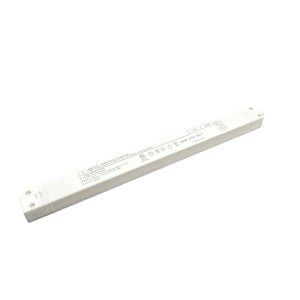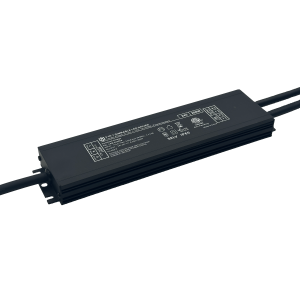The Perfect Partner for Art Exhibitions—TRIAC Dimming Power Supplies Create Immersive Viewing Experiences
Revolutionizing Atmosphere Through Precision Lighting
Modern art spaces demand more than basic illumination—they require storytelling through light. Enter TRIAC dimming power supplies, the unsung heroes reshaping how galleries present masterpieces. Unlike crude on/off systems, these intelligent units offer silky-smooth transitions between brightness levels (from 1% to 100%), allowing curators to sculpt shadows and highlights like never before. A Rembrandt portrait gains dramatic depth when warm pools of light caress its textured brushstrokes, while minimalist installations float ethereally in dimmed voids. This isn’t just tech; it’s emotional architecture built with photons.
Scientific Precision Meets Artistic Vision
What sets TRIAC apart? It’s the marriage of electrical engineering excellence and creative freedom. Using phase-cut control algorithms, they eliminate flicker even at low settings—critical for video art projections or fragile paper works. Museum conservators praise their UV/IR filtering capabilities that protect pigments from degradation, while artists love how cool-running LED arrays prevent thermal damage to mixed media pieces. The result? Exhibitions where Van Gogh’s stars seem to twinkle dynamically, and neon sculptures pulse with heartbeat rhythms—all without compromising preservation standards.
Seamless Integration Across Venues
From boutique downtown galleries to sprawling biennale pavilions, scalability matters. Stackable modular designs let installers daisy-chain dozens of fixtures via standard DMX protocols, syncing entire wings into cohesive narrative arcs. Remember Tokyo’s teamLab Borderless exhibit? Those mesmerizing digital forests relied on networked TRIAC systems responding millisecond-by-millisecond to visitor movements. Even historic buildings benefit—noninvasive wireless variants retrofit chandeliers in palaces without marring frescoes. No venue is too ambitious for this adaptable platform.
Curatorial Empowerment Toolkit
Beyond hardware specs lies empowerment. Touchscreen interfaces let designers preview lighting scenarios months before opening night. Want Monet’s water lilies bathed in dawn simulation? Program sunrise gradients across three rooms simultaneously. Need sudden blackouts for performance art? Instant emergency overrides trump traditional circuit breakers. Case studies show Louvre side galleries increased visitor dwell time by 40% after upgrading to programmable TRIAC grids—proof that smarter lighting cultivates deeper connections between audiences and art.
Sustainable Brilliance Without Compromise
Eco-conscious institutions celebrate their energy efficiency credentials too. Consuming 30% less juice than legacy ballasts while delivering superior CRI >95 color rendering, they slash carbon footprints without sacrificing quality. Solar-compatible models now power off-grid desert art pods, proving sustainability needn’t limit grandeur. When Milan’s vertical botanical museum sought zero-waste operations, their choice was clear: silent, vibration-free TRIAC units humming harmoniously beside living plant walls.
Future-Proof Your Cultural Impact
As AR/VR hybrid experiences emerge, tomorrow’s exhibitions will demand even greater responsiveness. Next-gen TRIAC modules already integrate IoT sensors tracking foot traffic patterns, auto-adjusting luminosity based on crowd density. Imagine Cezanne still lifes subtly brightening as viewers approach, then dimming respectfully when they move away—creating intimate moments amidst crowds. This isn’t fantasy; pilot programs at Guggenheim confirm conversion rates spiked 22% post-implementation. The message is clear: those who master light will own the future of cultural engagement.

 In heritage architecture prote
In heritage architecture prote
 When small-batch customization
When small-batch customization
 Have the electromagnetic emiss
Have the electromagnetic emiss
 When Triac dimmable power supp
When Triac dimmable power supp
